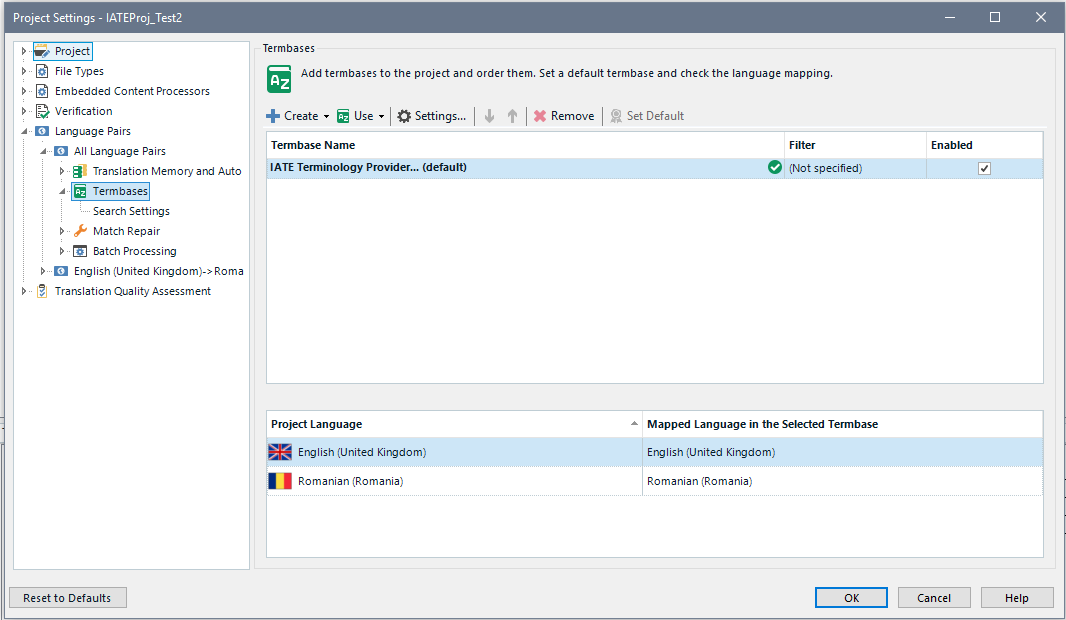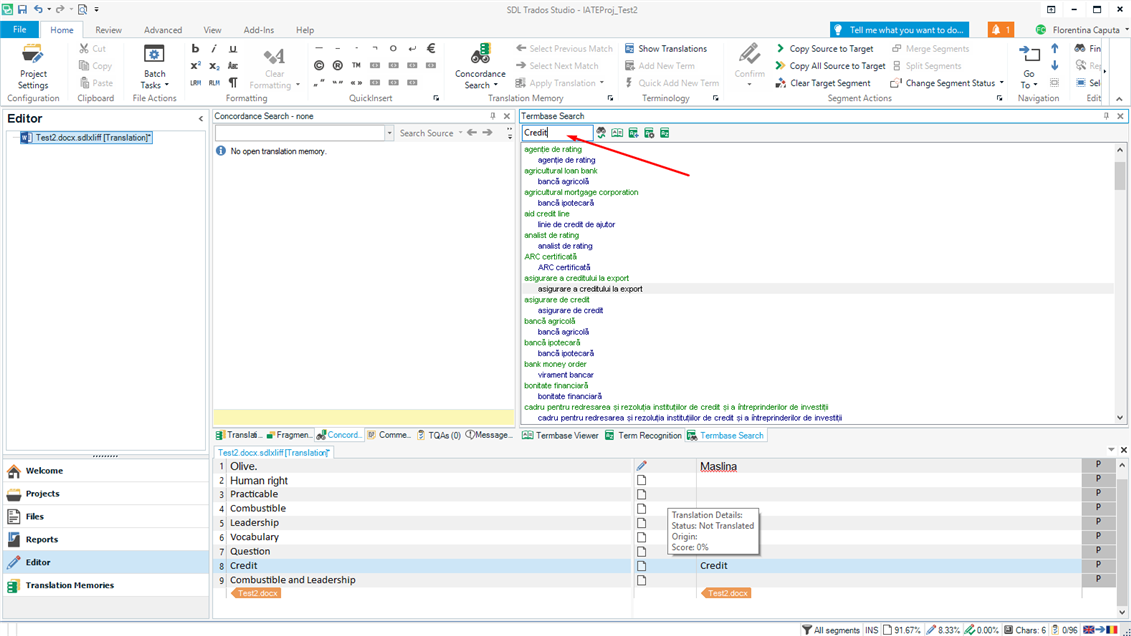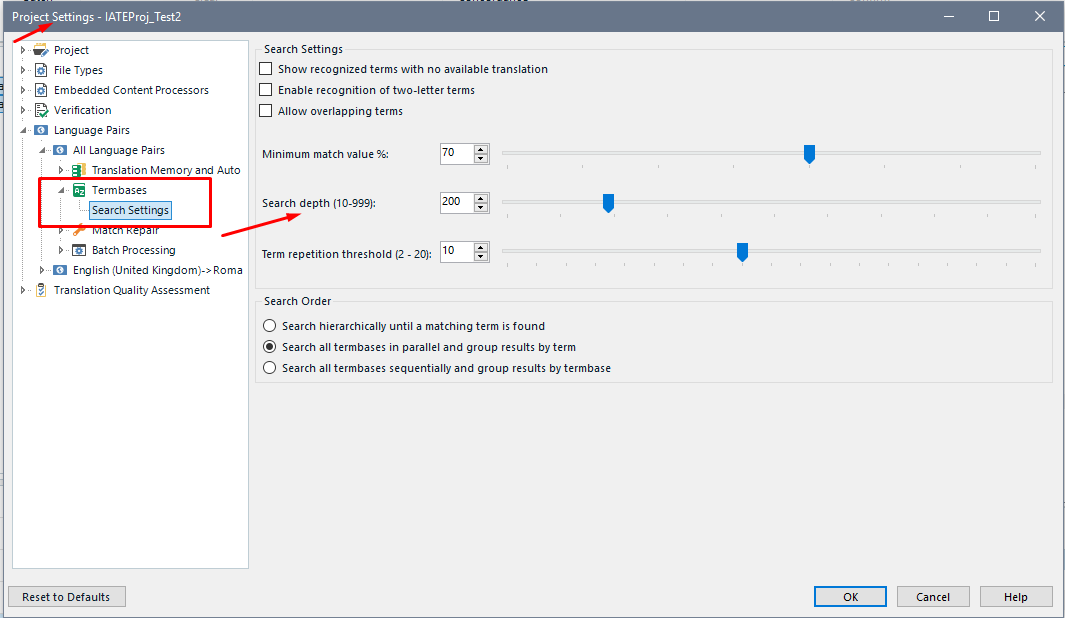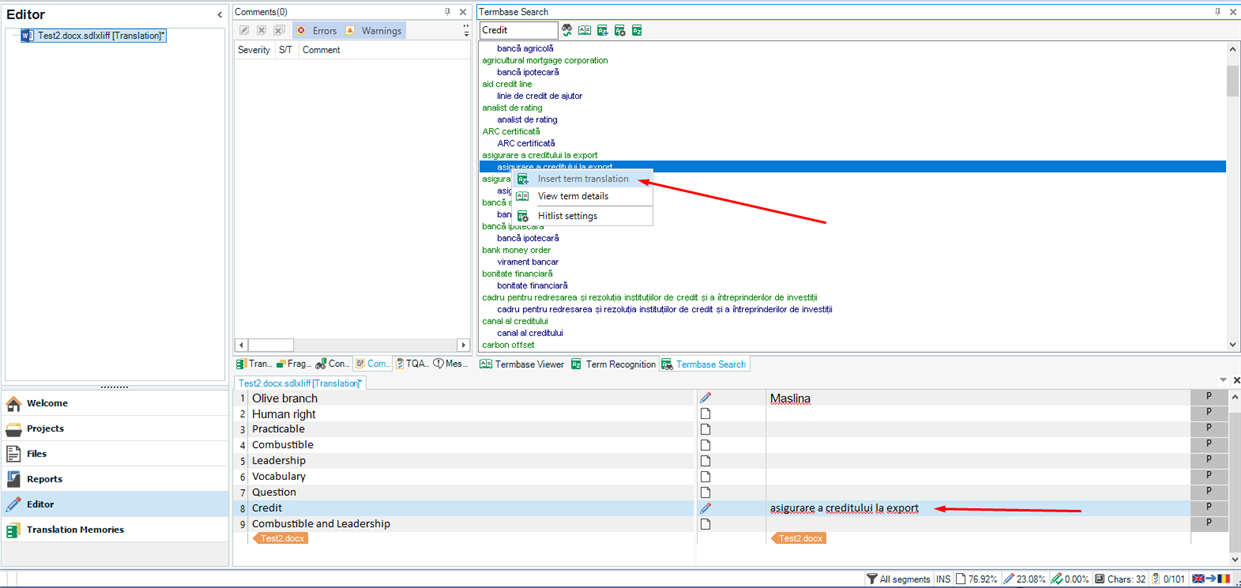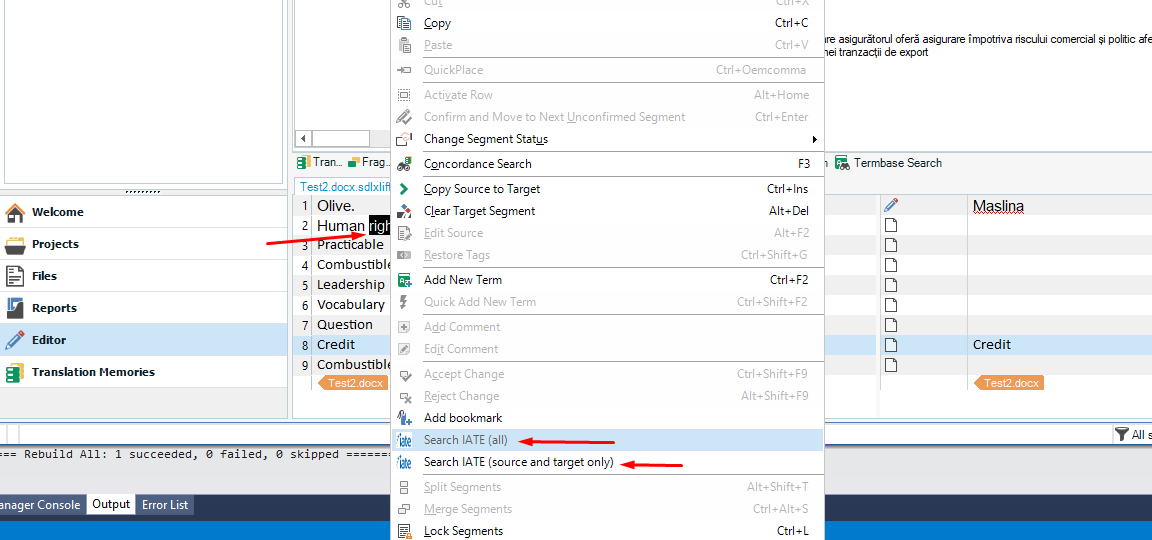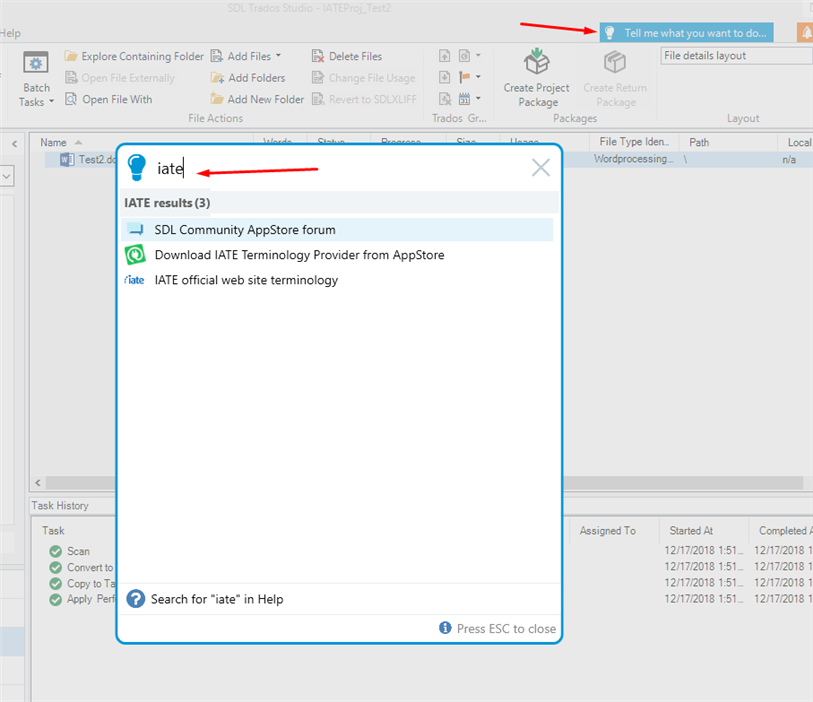Introduction
The plugin represents an integration with IATE European Union terminology and is available for Studio 2017* Studio 2019 and Studio 2021 versions only. Admin rights are required to install this plugin.
*Please note- You will require admin rights to install and run this plug in.
1) Installation
Trados Studio 2019 and Trados Studio 2021 users who have installed the latest version of the plugin (25th May 2021 or later) do not need to install SQL Server Express LocalDB
Trados Studio 2017 users only- Before installing the plugin, SQL Server Express LocalDB must be installed because of the added local DB cache functionality, on each local machine first,
SQL Server Express LocalDB can be downloaded and installed free of charge from here-
https://www.microsoft.com/en-us/download/details.aspx?id=42299
Click Download
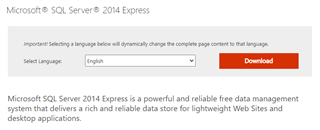
Scroll down and select the Local DB (depending on whether you have a 32BIT or 64BIT system)
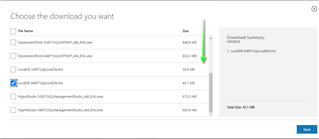
A new DB is created for each project, where the IATE Terminology provider is added.
Each DB contains two files- .mdf and .ldf
You will find these here - (Trados Studio 2017 users only)
C:\Users\yourname\AppData\Roaming\SDL Community\IATEProviderCache
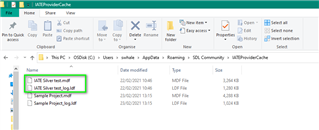
Once IATE Terminology provider has been added to a project, we will first search the local DB to see if there is cached result.
If there are none, only then, will we make a search to the IATE service and the search response will be added to the database.
Next time the user navigates to that segment, no further calls are made to IATE, but instead the results from the local DB will be shown.
If you are using Trados Studio 2019 or Trados Studio 2021 you will find the cache and temporay storage folders here-
C:\Users\username\AppData\Roaming\RWS AppStore\IATETerminologyProvider
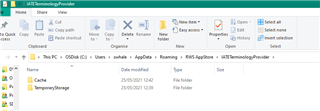
Settings
When a user adds the IATE Terminology Provider to the project, the following settings can be configured for the search process:
1. Domain: one or multiple domain(s) can be selected. The search will return terms from IATE, based on the selected domain(s).
- Selecting multiple domains will slow down the search- so it's advised to select only relevant domains.
2. Term Type: if no option is selected, the IATE search will return results for all kind of term types.
3. Clear local cache- is additional functionality, that now allows you to clear the database from the project.
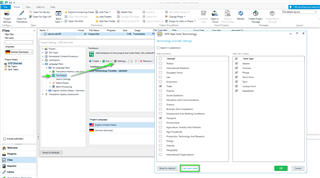
After settings are done, the project Termbase window should look as follows:
Termbase Search
The results are returned from the IATE terminology database, based on the entered term, project languages and settings.
Other settings can be done directly from Studio interface from:
Project Settings-> All Language Pairs-> Termbases-> Search settings (user can select the search depth which represents the number of terms returned).
User has the ability to insert the term translation by right clicking on the term result -> Insert term translation option
Termbase Viewer
The following information can be seen directly in the Termbase Viewer by clicking right on the term-> View term details. The first group of information it is representative for the source language, and the second group, for target language: - language flag + language name.
- searched term
- term type
- term domain
- term subdomain (if exists for the specified term)
- term definition (if exists)
Besides the details displayed through "View term details" option, the Termbase Viewer shows a list of all returned searched results (user can navigate through the list and based of the term selection, the source and target languages details will be displayed near)
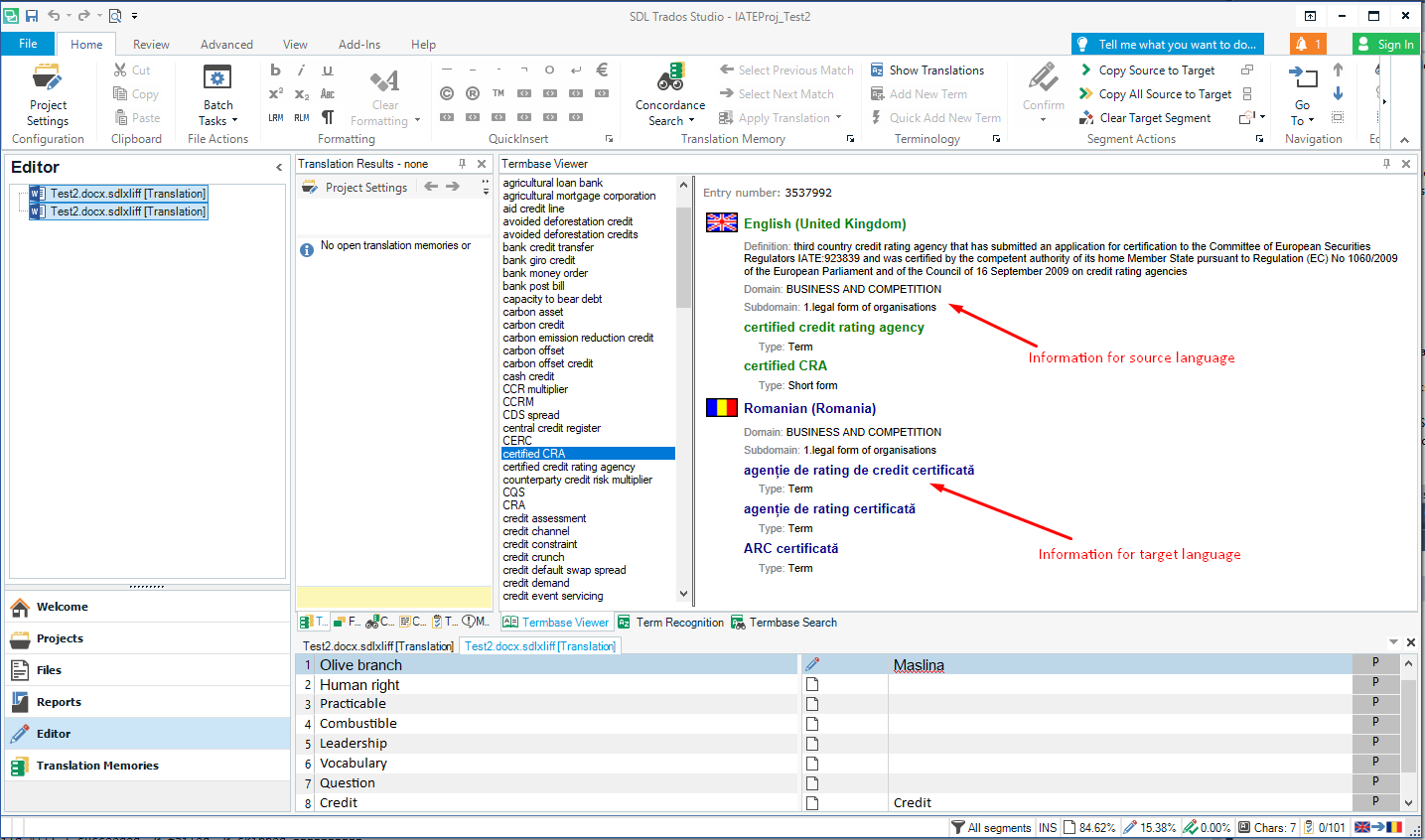
User has 2 options to navigate on the IATE official website and check for more term details following the next steps:
- select term(s) in the source/target segment
- right-click on term -> select "Search IATE(all) or "Search IATE (source and target only)
*For "Search IATE (all), the website will return term details for the Studio active document source language and all available IATE target languages.
*For "Search IATE (source and target only), the website will return term details for Studio active document source and target language.
The navigation options works in two-way mode: users can select term(s) either from the source segment side, either from the target segment side.
The IATE web site, after selecting "Search IATE(all)" option, will get opened in the "Search Results Viewer" (it can also be started from the ribbon in the "View" tab):
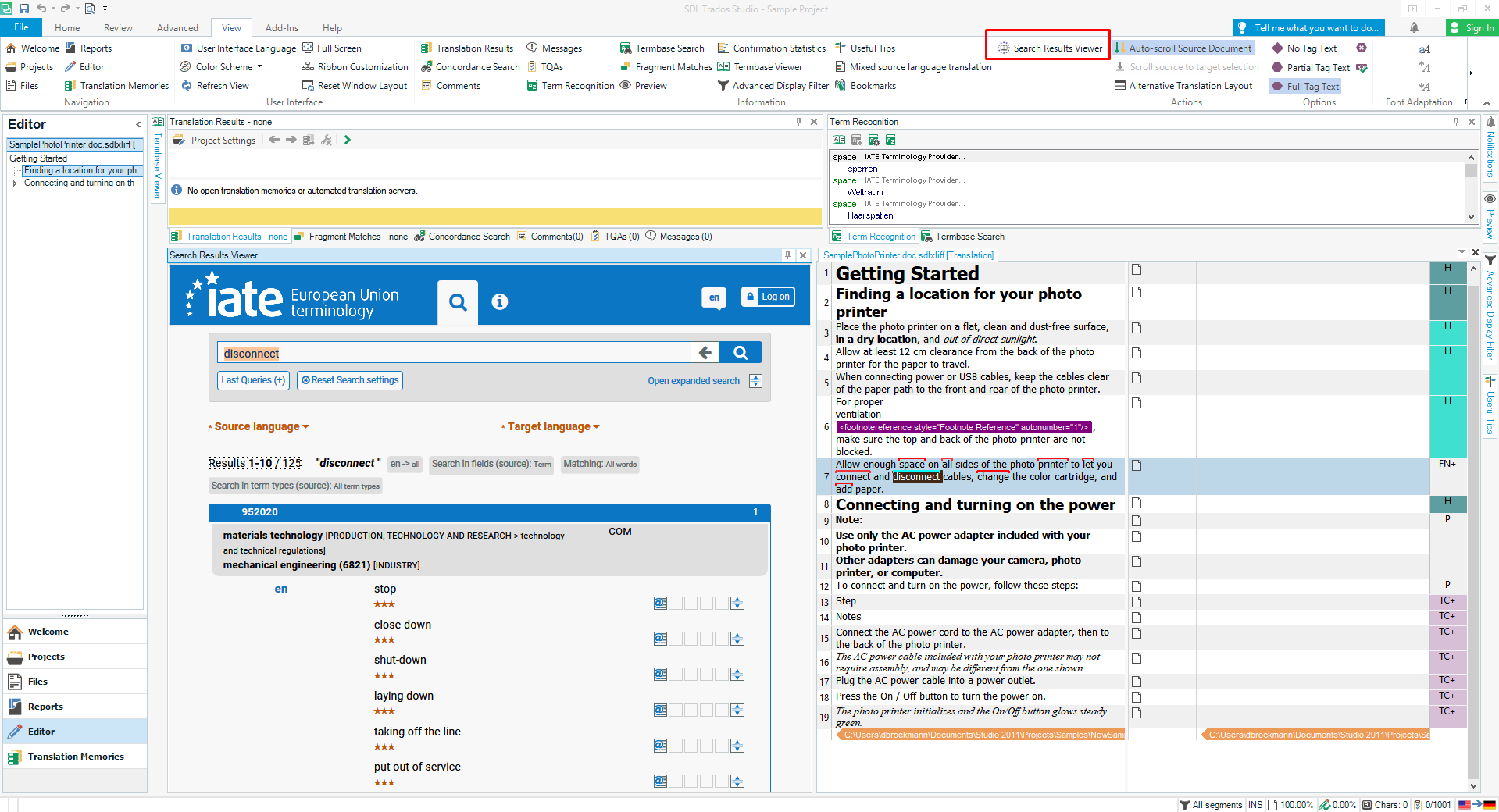
Studio TellMe
TellMe feature is integrated with IATE provider and makes available 3 actions:
1. Community Support action: type words iate/iate community/iate support
2. Store action: type words iate/iate store/iate download
3. Contact action: type words iate/iate contact/iate official/iate website/iate web search
Logging
The application logs information about the flow, which is useful to identify issues that might occur.
The IATEProviderLogs.txt file can be found at the following location:
C:\Users\{userName}\AppData\Roaming\SDL\IATEProviderLogs\IATEProviderLogs.txt. The file can be attached to the email/ Sdl Community topic when a problem regarding the application is raised.
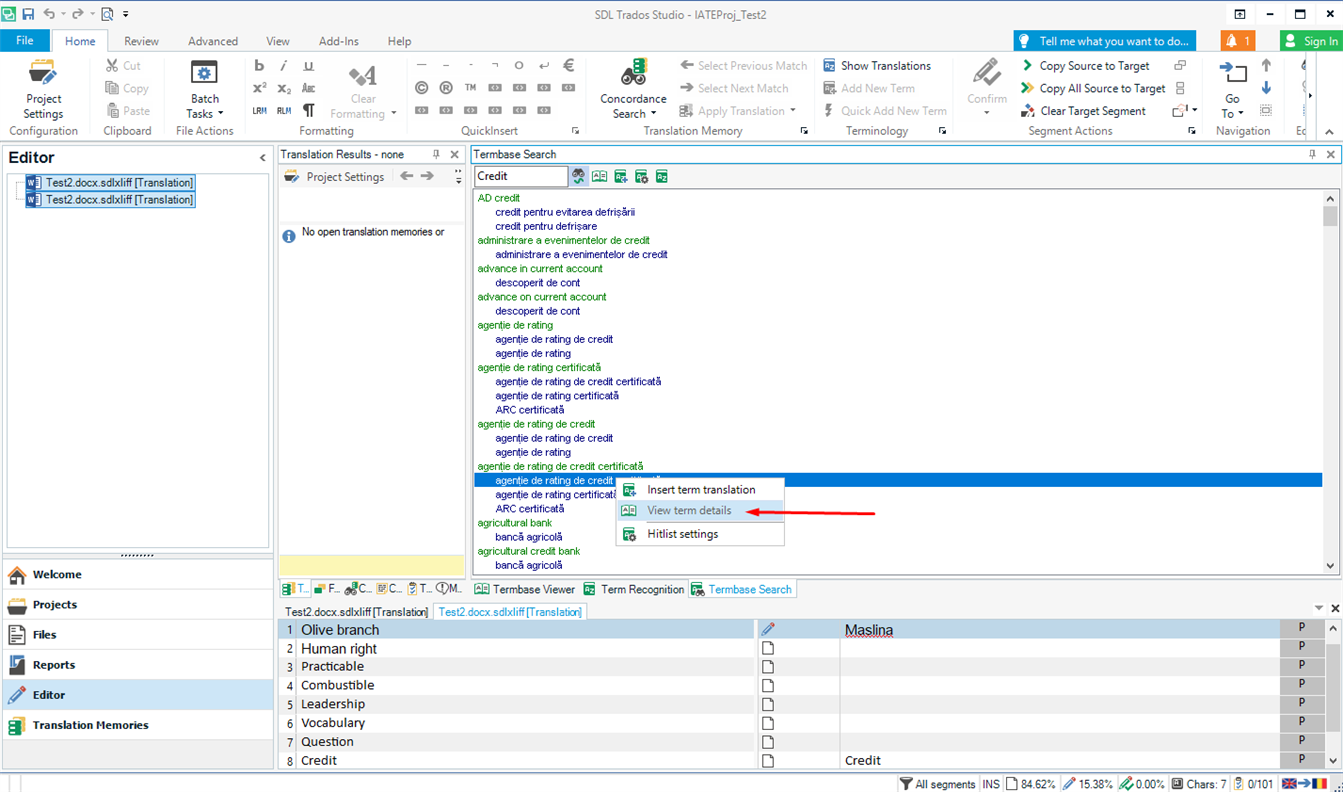

 Translate
Translate
